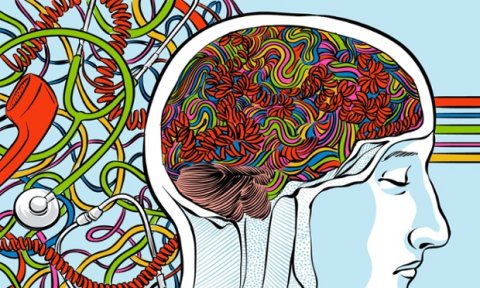Submitted by Moiz Rizvi on

As I sat down between classes in the GDC basement to finish writing this post last week, I received a call from one of my close friends from high school. A midday call from him wasn’t out of the ordinary, but I wasn’t actively expecting one. Our conversations usually took place when the sun was down and many of the annoyances — usually minor, occasionally major, but almost always absurd — that we had carried with us since we last spoke were ready to be unloaded. Like bidirectional friend-therapy. (Or the blind leading the blind, depending on how you look at it.) On that particular day, the light-hearted trash talk and warm but worn-out jokes were were cut short. Almost abruptly.
It took a few minutes to digest the news of Richard’s passing. I wanted for it to not be true. Already late for class, I had dug deeper than I’d intended on and found no mention of his name in news sources. (I even checked the state registries — nothing.) I sat through class unable to face forward. My mind wasn’t settled until that evening when a post on his Facebook wall confirmed it.
Richard was a kind, intelligent person. We first met in middle school and up until college, there were few academic years when we didn’t have at least one class together. After high school, I didn’t see him regularly but he never passed me by on the street or on campus without saying hello. The last hello hadn’t been longer than a week prior. And while I generally avoid falling into the dizzying infinite space of what-if’s, I can’t help but wonder if there was anything that could have been done to keep him from making his decision.
Last week was Mental Health Awareness Week. But I don’t think Richard knew that. I don’t think nearly enough people knew that. And to be clear, it’s not a strike against the university. We are fortunate to be at a university that provides and promotes their mental health services as much as Texas does. It’s a strike against us.
Whether it’s the fault of the organizers that it wasn’t promoted well enough or the fault of the student body for simply not caring, the general lack of awareness regarding issues of mental health is indicative of a much larger problem of openness and stigma. If you’re unclear on the idea of stigma, recall the last time you talked to someone about mental health problems in any specific terms. Regardless of who said what, it's fairly unlikely that either of you were incredibly comfortable. The deeply personal, incredibly nuanced nature of stigma makes it clear that there is no easy or singular answer. But that doesn’t mean we can’t do anything about it.
It's been found that when there is a high-profile suicide in the news, suicide rates in the region of the suicide spike by a statistically significant amount. In many cases, all that a person who’s on the edge needs is slight nudge of validation for the idea. The existence of “suicide clusters” as a well-documented phenomenon is a jarring reality. But change is the rejection of realities as inevitabilities. And change is imperative.
What needs to change is our understanding of mental health. It starts with taking the time to learn about common mental disorders and understanding how to support loved ones who may be facing them. It starts with accepting the discomfort that comes with conversations about mental health. It starts with understanding the impact of your words and refraining from using the names of serious disorders as casual adjectives like "Stop being so OCD" or "He’s being bipolar today." It starts with understanding the lines behind which jokes should stay — a line that the disgustingly common joke phrase “kill yourself” clearly crosses. It starts with taking all concerns of self-harm and self-endangerment seriously regardless of circumstance. It starts with being the friend who encourages someone to find professional help when they feel like they need it but simply are not in the state to find it. Sometimes, it starts with simply listening.
Unsurprisingly, it ends with everyone earnestly trying to understand each other and treating each other like human beings — the way they would want to be treated. In that world, we’d find the inverse effect of suicide cluster. We'd find every tragic end opening the door to numerous second chances at life for people who had thought they'd made up their minds about leaving this world behind. And there's hope. But there's much to be done still. And only through our collective awareness and understanding will we come to a point where we no longer lose our friends and family to suicide. I hope we get there soon.







